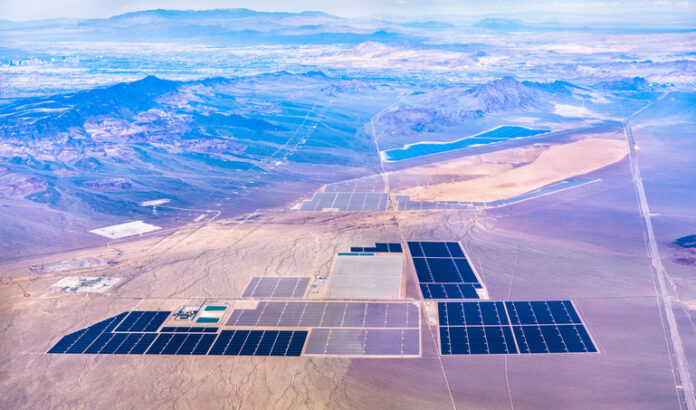New Jersey Gov. Phil Murphy signed four bills designed to increase the Garden State’s reliance on renewable energy, at a signing ceremony.
The bills focus on creating the infrastructure for electric vehicles (EVs), as well as facilitating the expansion of solar power in the state. As part of the latter effort, a bill Murphy signed into law, alters state land-use policies in order to facilitate and expedite the construction of large industrial solar arrays.
One law, S3223, establishes zoning standards and sets numerical mandates for installing supply equipment for and make-ready parking spaces for EVs.
A second law, S1653, encourages the development of zero-emission vehicle fueling and charging infrastructure as a part of redevelopment projects.
Other new laws ease the solicitation process for and encourage the development of certain solar power generation facilities and establish a pilot program for unpreserved farmland, allowing some rural lands used for a dual-use solar projects to be eligible for farmland tax assessments.
One Hundred Percent ‘Clean Energy’
At the July 9 press event Murphy, touted the bills as part of “one of the most aggressive plans in the nation to move New Jersey away from fossil fuels and toward a future based on clean and renewable energy technologies.”
“From wind-turbine manufacturing to solar energy installation, to electric vehicles, the modernization of our energy sector will not only aid us in addressing climate change but also drive significant economic growth and create good-paying union jobs across the state,” Murphy said. “By signing these bills today, we are marking another milestone on our path to 100 percent clean energy by 2050 and fueling our clean innovation economy.”
Wind Bill Not Signed
One bill Murphy did not sign at the press event is a controversial offshore wind measure.
The bill grants local communities a public hearing on offshore wind projects connecting onshore in their towns, but it strips those communities of almost any control over where and how a project’s power lines and associated infrastructure are installed onshore. The bill also establishes a mechanism whereby New Jersey’s Board of Public Utilities (BPU) can approve a project, if local communities attempt to delay or reject it.
The fact that the bill has significant opposition from seaside communities, may account for Murphy’s delay in signing it. The signing ceremony for the four bills took place in Seaside Heights, where the offshore wind bill faced stiff resistance.
‘Devil … in the Details’
Some of the bills had bi-partisan support, other didn’t, says William Smith, director of communications and media relations for the Garden State Initiative
“There are pros and cons to the bills the governor has signed, which is reflected in the fact that two passed with strong bi-partisan support, while two were largely along party lines,” said Smith. “Overall, there’s much to admire in the commitment to renewable energy; however, the devil is in the details, or in this case, the lack thereof.
“Since the governor and the BPU unveiled the state’s new Energy Management Plan (EMP) in early 2020, we’ve been concerned about the lack of a ratepayer cost analysis,” said Smith. “Visions and strategic plans without providing any underlying costs are rightfully met with broad skepticism and suspicion, and the administration only recently initiated a cost analysis that will not be complete for 18 months, yet implementation of the EMP, including contractual commitments for billions of ratepayer dollars, continues.”
New Jersey is on the wrong energy path, says Jay Lehr, Ph.D., senior policy analyst with the International Climate Science Coalition.
“Governor Murphy has vaulted himself into the position of being the most ignorant governor in American when it comes to energy,” said Lehr. “A very densely populated state, New Jersey is sentencing itself to the kind of energy poverty California is experiencing already.
“Wind and solar as sources of electricity, and EVs as a transportation mode, will send the state back to the days when people traveled to Manhattan on horseback,” said Lehr. “Many of the actions contained in the just-signed legislation will likely never come to pass, but those that do will constitute a clear and present danger of bankruptcy for the state and its citizens.”
Bonner R. Cohen, Ph.D., (bcohen@nationalcenter.org) is a senior fellow at the National Center for Public Policy Research and a senior policy analyst with the Committee for a Constructive Tomorrow.


























